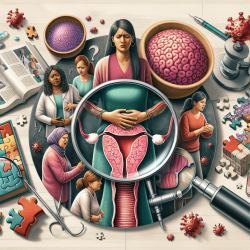Maternal depression and anxiety disorders (MDAD) can have profound effects on child development. A recent study conducted in Manitoba has shed light on the intricate relationships between MDAD and child outcomes. For practitioners working with children and families, understanding these dynamics is crucial for fostering positive developmental trajectories.
The Study: Key Insights
The study examined 18,331 mother-child pairs in Manitoba, focusing on the association between MDAD and child development during the kindergarten year. Using data from health and social databases, researchers assessed the timing, recurrence, and severity of MDAD and its impact on five domains of child development: physical health, social competence, emotional maturity, language and cognitive development, and communication skills.
Findings
- Modest Negative Association: MDAD was found to have a modest negative association with child development across all domains, particularly affecting social, emotional, and physical development.
- Prenatal Sensitivity: Prenatal exposure to MDAD showed a stronger negative association with child outcomes than exposure during other time periods.
- Recurrent MDAD: Recurrent exposure to MDAD had a more significant negative impact on child development than any specific time period or severity of the disorder.
- Family Context: The influence of family context (teen motherhood, lone parenthood, low socioeconomic status) was a strong mediator in the relationship between MDAD and child outcomes.
Implications for Practitioners
The findings from this study highlight several areas where practitioners can focus their efforts to support children and families effectively:
Early Intervention
Interventions should begin during the prenatal period and continue through early childhood. Addressing maternal mental health early can mitigate negative outcomes at school entry, which are predictive of later health and social challenges.
Holistic Family Support
Practitioners should consider the broader family context when designing interventions. Supporting teen mothers, lone parents, and families with low socioeconomic status can have a positive impact on child development outcomes.
Continuous Monitoring
The recurrence of MDAD suggests that continuous monitoring and support for mothers with depression or anxiety disorders are essential. Regular check-ins can help identify ongoing challenges and adjust interventions accordingly.
Encouraging Further Research
This study underscores the importance of further research to untangle the mechanisms through which MDAD influences child development. Practitioners are encouraged to stay informed about emerging research in this field to enhance their practice continually.
Conclusion
The insights gained from this study provide valuable guidance for practitioners aiming to improve developmental outcomes for children exposed to maternal mental health challenges. By focusing on early intervention, holistic family support, and continuous monitoring, practitioners can make a significant difference in the lives of these children.










